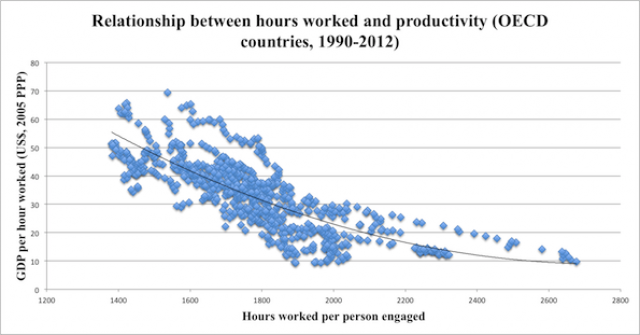How many times have you been in this situation? You’re an architect or an intern sitting at your desk in the office, you just had your lunch two hours late because you had to submit some important documents and drawings to your client. On second thought, this submission was only important because you made it to be in your head. It could have very well gone tomorrow. It knocked the stuffing out of you. And suddenly you find yourself saturated, you have a massive 3 more hours to go until your ‘official’ work time gets over, but your mind has already decided that it won’t work anymore. Your body agrees. You dread the thought of continuing to work for another 3 more hours. If you’re more senior, it’s a bit easy to get through it because you have more knowledge in your brain, meaning that it’s easier to do a drawing and take decisions in a short time. But if you’re just starting out, then chances are you are dreading the thought of going through the next 3 hours. You start to open random AutoCAD files and zoom in and out to give the illusion of you working hard. If you or your staff are facing this, something’s really wrong at your workplace.
I haven’t worked long enough to even consider myself worthy to comment on how an architecture office should be run. These are just some observations I’ve made on what I’ve seen so far. I’m going to post it anyways, and you can correct me all you want if you feel I’m wrong. The all round productivity of the office can be achieved only if 3 (or at least 2) of these factors can be satisfied.
1. Optimal Work Hours – Your boss…..is the head of the firm. Their ideals, ethos and vision for their work directly influences their team. The boss dictates how many days a week you have to work, and how many hours you put in a day. This has huge implications on the output of the workforce. If you work for long hours, chances are that your productivity will drop. It is baffling to see such high pressure to put hours into the work. Isn’t it better to put work in the hours? Are you really saying that you prefer quantity to quality? Who ever had their best ideas when they were exhausted? (No I’m really asking. Do you know?)

2. Passion – If you aren’t passionate about your job, then it is really going to be tough. It’s what makes you go the extra mile and pay that extra bit of attention to detail.

This being said, passion isn’t the most important as well. If the other two factors are optimal, then passion can be nurtured. If your seniors are zealous enough, it can rub off on you, it can also grow at any stage and come out in directions you hadn’t ever imagined. You can be passionate about anything, not necessarily your job. You’ll think of some way to link your interest to your job. Or even if not, it’ll transpire onto your actual work.
3. Sleep deprivation – This is one of the most important factors affecting your mood and energy levels. This has its basis in the principal of ‘sleep debt’ which says that if you sleep for just 6 hours a day every day, you lack the necessary hibernation time for complete recovery of the body and mind such that by the end of the week, it would be as if you were awake for 48 hours straight. Confirmed by University of Georgia, the ideal amount of sleep is 8 hours. This topic however, is very sensitive to architects :S ; let’s come to it later.

Trying to find the right balance
According to me, an architect’s performance at work depends on these three factors, and if even one of them is lacking in some sort, his overall performance lacks. Consider this: You may have 9 hours of sleep and are fresh as hell in the morning, and you are extremely passionate about your work, but if you are made to work beyond office hours, your quality of work drops and you grow frustrated in time.
Another scenario is this: your boss is the most inspiring person in the world, and implement less working hours to ensure quality work. You are passionate as hell about your work too, but if you don’t sleep enough, you are going into each day not at your optimal level. You get the illusion of being awake by drinking coffee and working under skylights, but you will never be able to be at your best, because let’s face it, lack of sleep is UNREVERSIBLE. Just like how time once lost can never be got back, if you don’t sleep enough, you can’t substitute it. If you don’t spend enough time sleeping, your mind cannot register everything you’ve done through the day, however enriching or enjoyable it may have been.
By making architects work long hours to complete drawings, we are grooming robots. You may be an excellent producer of plumbing drawings and RCC details, but you’ll realize that your progress as a creative individual will be stunted. On days when it’s possible, the staff should be allowed to go out early, observe the outer world, and do their own extra thing on the side. You’ll then have a competent team you can be proud of.
Cover picture source: https://www.nowblitz.com/blog/how-to-gain-energy-throughout-the-day-in-an-office-job/
Final thoughts
I understand that an architect’s job is a very demanding one. Since the beginning of our education we are told to think differently, because architecture is a very unique field requiring unique processes to arrive at a design, or idea. That’s why we actually cannot formulate a right way to work and all the theories I mentioned above can be tossed out of the window.
We may spend a lot of time on drawings, but it actually takes that one all-nighter to trudge across the finish line, so that at the end you can get food on your plate. And that’s perfectly all right, that’s probably one of the highlights of being an architect. Are you even an architect if you haven’t pulled off an all-nighter? All I’m saying is that though each architecture office has their own style and demands, the above mentioned factors can be implemented during the ‘normal’ periods at office.





